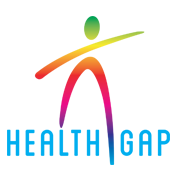National Minority Donor Awareness Day Takes on New Significance During COVID-19 Pandemic
Acceptable donor criteria narrow and transplant surgeries go on hold as need for minority donors remains high
CINCINNATI, OHIO – JULY 31, 2020 – National Minority Awareness Day kicks off National Minority Donor Awareness Month on Saturday, August 1. This year’s observance takes on greater urgency as organ donation and transplantation have been negatively affected by COVID-19. The Center for Closing the Health Gap – Cincinnati’s only grassroots organization dedicated to eliminating health disparities among marginalized populations – is using its platform to raise awareness on this key issue.
The initiative was launched as National Minority Donor Awareness Week in 1996 by the National Minority Organ Tissue Transplant Education Program (MOTTEP). Today, building awareness around the critical shortage of organ donors in minority communities — communities with the lowest percentage of donors and where the pandemic has taken its greatest tolls — is more important than ever before.
“Health disparities are the reason the Health Gap was formed more than 15 years ago,” said Health Gap President and CEO Renee Mahaffey Harris, who hopes to use the day to increase awareness about the disparities specifically impacting organ donation. “Now, in 2020, we’re continuing to fight those same disparities with the added complication of COVID-19, which has exacerbated existing health gaps in minority populations and created new ones. Organ donation is a significant issue within those gaps.”
There are several factors critical to matching donors to recipients. A key component is blood type, and while organ donation isn’t based on race or ethnicity, ethnic groups often have similar blood types. As a result, according to HSS Journal, success rates increase when recipients are paired within the same racial group.
There is already a serious shortage of transplants within African American, Asian, Hispanic, Native American and Pacific Islander American populations. Minorities make up 57% of those on the organ waiting list (Health Resources & Services Administration, June 2020). According to the U.S. Department of Health and Human Services Office of Minority Health, African Americans make up the largest group of minorities in need of an organ transplant. The department further found:
- The number of organ transplants performed on African Americans in 2019 was 25.8% of the number of African Americans currently waiting for a transplant. The number of transplants performed on Caucasian Americans was 47.6% of the number currently waiting.
- While more than 28% of the total candidates currently waiting for transplants are Black, African Americans comprised only 12.5% of organ donors in 2019.
Mahaffey Harris added, “A major result of health disparities is the high rate of chronic illnesses within the Black community — illnesses that can cause organ failure and require a transplant. Add to that the existing shortage of Black organ donors, the African American population being heavily affected by COVID-19 infection, the Health Resources and Services Administration’s recommendation that the organs of those infected with COVID-19 should not be used for transplantation, and we have a potential health emergency on our hands.”
A study completed by the National Institutes of Health in 2006 looked into the reasons behind the donor shortage and found that African Americans were less likely to donate a loved one’s organs. They were also less willing to sign a donor card, citing reasons that included:
- Lack of transplantation awareness
- Religious beliefs and misperceptions
- Distrust of the medical community
- Fear of premature declaration of death after signing a donor card
- Fear of racism
National Minority Donor Awareness Day aims to increase awareness of the need among minorities for more organ, eye and tissue donors. Another focus of the day includes honoring minorities who have donated. While providing education, the day also encourages others to register as donors. At the same time, part of being informed includes practicing good health habits. The healthier the population, the fewer transplants needed. More information about Minority Donor Awareness Day and Month can be found at http://organdonor.gov/awarenessweek/awarenessweek.html.
For further reading on racial divides and organ donation, refer to the following resources:
- https://www.ncbi.nlm.nih.gov/pmc/articles/PMC2861044
- https://minorityhealth.hhs.gov/omh/browse.aspx?lvl=4&lvlid=27
- https://www.ncbi.nlm.nih.gov/pmc/articles/PMC1831604/
About the Center for Closing the Health Gap in Greater Cincinnati
The Center for Closing the Health Gap is Cincinnati’s only grassroots organization that promotes awareness about health disparities through education, training, advocacy and outreach activities for organizations and individuals in Greater Cincinnati. The Center maximizes collaborative opportunities by working with organizations, associations, health institutions and other stakeholders to promote health and disease prevention. The Center’s goal is to improve the health status of the African American, Latino and Appalachian populations.
